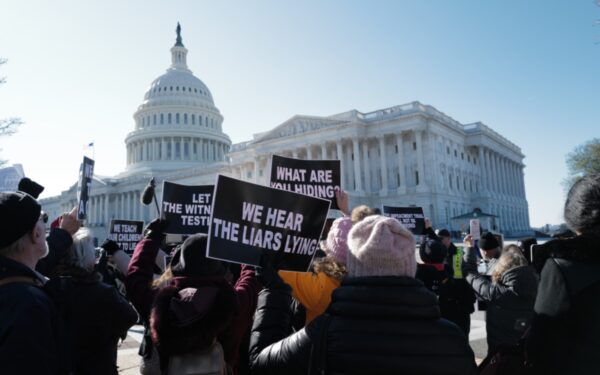Donald Trump’s inauguration today provides an opportunity to examine 5 major areas where his Presidency could fundamentally change US economic policy. What soon becomes clear is most of the areas where he wants ‘big’ change could lead to clashes with a Republican congress traditionally more free-market in disposition.
1. Infrastructure spending
Trump and his team have promised a $1 trillion infrastructure investment programme over 10 years. His team believes tax credits can induce private sector investment in roads, bridges, water and sewage works, and this can be done on a revenue neutral basis given boosts to tax revenues from the activity. But there are glaring logical errors in the proposal, and his new Transportation Secretary Elaine Chao was probably more honest when she said that this programme would require increases in federal funding. Republicans in Congress were of course hostile to Barack Obama’s attempted ‘stimulus’ programme in 2009, and there will no doubt be many reluctant to give the green light to increases in the federal deficit under Trump. In fact, there is little justification for any type of overt ‘stimulus’ now given the unemployment rate is so low at 4.7 per cent. But given this was a major plank of his election platform and many Democrats would be interested in supporting a package, it looks as if Trump could override the opposition.
2. Corporate tax reform
Trump wants substantial cuts to the headline rate of corporation tax to boost growth and to encourage companies to repatriate profits to the US. Republican speaker Paul Ryan also wants headline rate cuts and simplification of the corporate tax code. But, Ryan’s Congressional plan also includes provision for a ‘border adjustment tax’ – a cash flow based tax that exempts export receipts from taxable income but also prohibits deductions of imports as expenses. This could have disruptive and perverse impacts at a micro level (not to mention that it breaches WTO rules), but most economists believe in the long run its effect should be neutral as the exchange rate should fully adjust. What this is really about is a way to raise revenue to finance the rate cuts, and to shift the tax base from origin to destination, as a means of cracking down on tax competition (and hence tax avoidance and planning). Many of us free-market types worry that this is the first step towards a US VAT – providing revenues for higher government spending. Trump has recently expressed uneasiness about this path, and now seems keener on pure rate cuts.
3. Trade policy
Trade policy is the area where Trump could have the most damaging economic impact. My Cato colleague Daniel Ikenson has highlighted how Wilbur Ross at Commerce, Peter Navarro at the new National Trade Council, and Robert Lighthizer as U.S. Trade Representative means a team aimed at protecting U.S. industry from competition. Trump’s team have flirted with the idea of everything from a general 10 per cent import tariffs, renegotiating NAFTA, abandoning the Trans Pacific Partnership and merely stricter enforcement of rules on intellectual property and other areas under existing trade law. Piecing together the musings, it seems clear the Trump team will shift away from large multilateral trade deals towards bilateral deals with advanced Western countries (this in part explains Trump’s readiness for a free trade deal with a post-Brexit UK). Though Paul Ryan and others have distanced themselves from Trump’s import tariffs, it seems the US will become more protectionist, with the result being higher US consumer prices, potential retaliations from other countries, and a less dynamic economy (both in the US and globally).
4. Entitlement reform
Recently Democrat Presidential candidate Bernie Sanders took to the floor of the Senate to remind Donald Trump of his tweet saying “I was the first & only potential GOP candidate to state there will be no cuts to Social Security, Medicare and Medicaid”. Yet the US public finances are on an unsustainable long-term path, largely because of these entitlement programmes and their interaction with an ageing population. For this reason, Paul Ryan built his career on highlighting the need for entitlement reform, and he is right on the substance. Does this mean Trump will leave entitlements untouched? There’s a way to square the circle politically: provided changes to the programmes are future changes to eligibility or else how the programme is funded, one need not ‘cut’ the programmes. But the Democrats are sniffing around for this ‘broken promise’ and Trump will be wary of perceived betrayal. It seems more likely any attempted cuts to government will come from slashing spending in other areas, largely as we have seen in the UK.
5. Rules-based capitalism vs. business by Twitter
Perhaps the most important yet under-appreciated impact of Trump though could be a push away from ‘rules-based capitalism’ to politicians using carrots and sticks to bring business to heel for their agenda. Trump’s attacks on individual companies through Twitter, and indeed through threats and promises, risks encouraging crony capitalism by encouraging businesses to seek favour with the administration. Already we have seen companies re-issuing old job stories to attempt to get Trump’s public backing. Cass Sunstein warned of the risks of this yesterday, and one hopes Congressional Republicans will push back against this trend. As yet, however, they largely seem to be basking in the glory of Trump’s supposed ‘wins’.
Ryan Bourne works at the Cato Institute, where he is the R. Evan Scharf chair in the Public Understanding of Economics.



